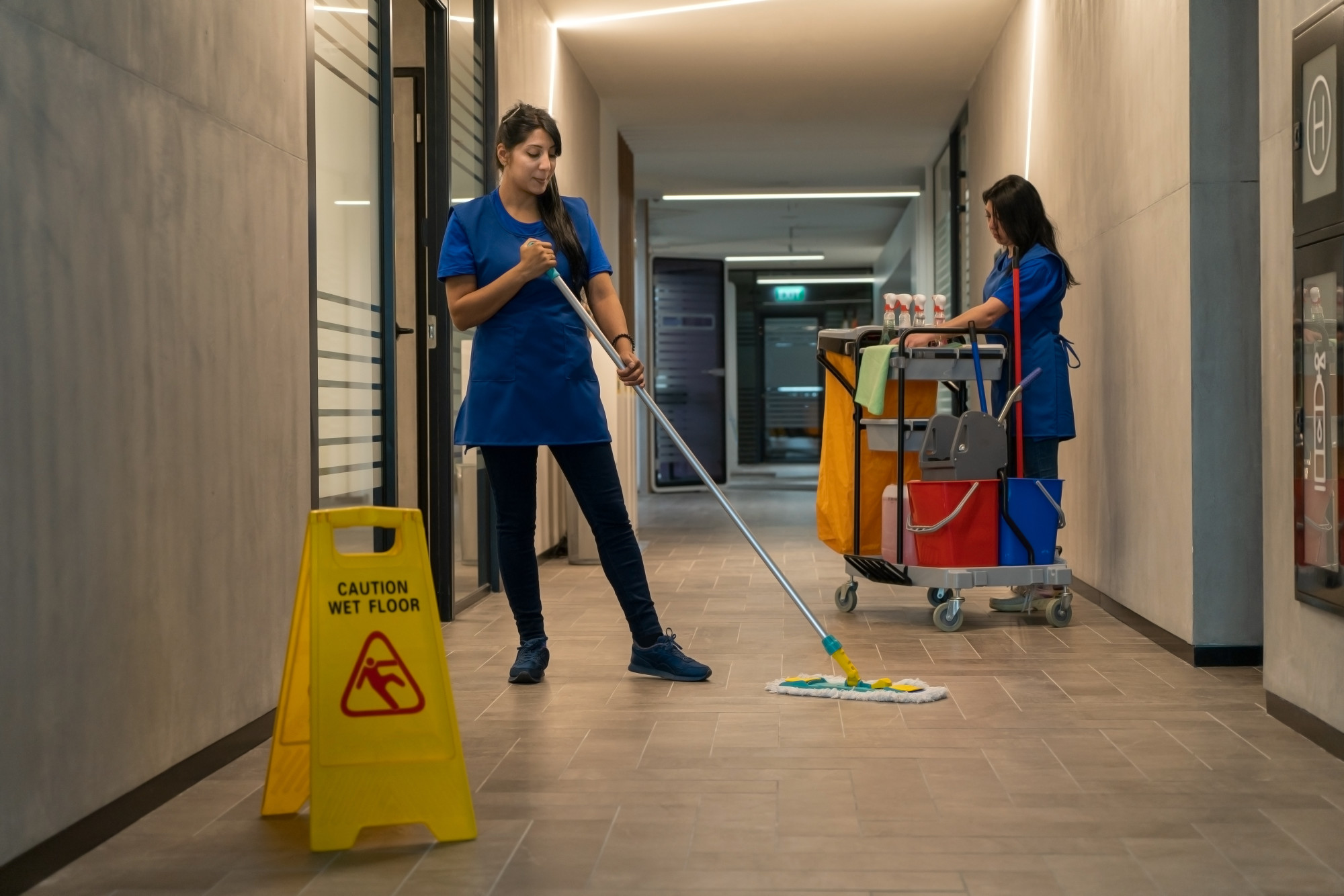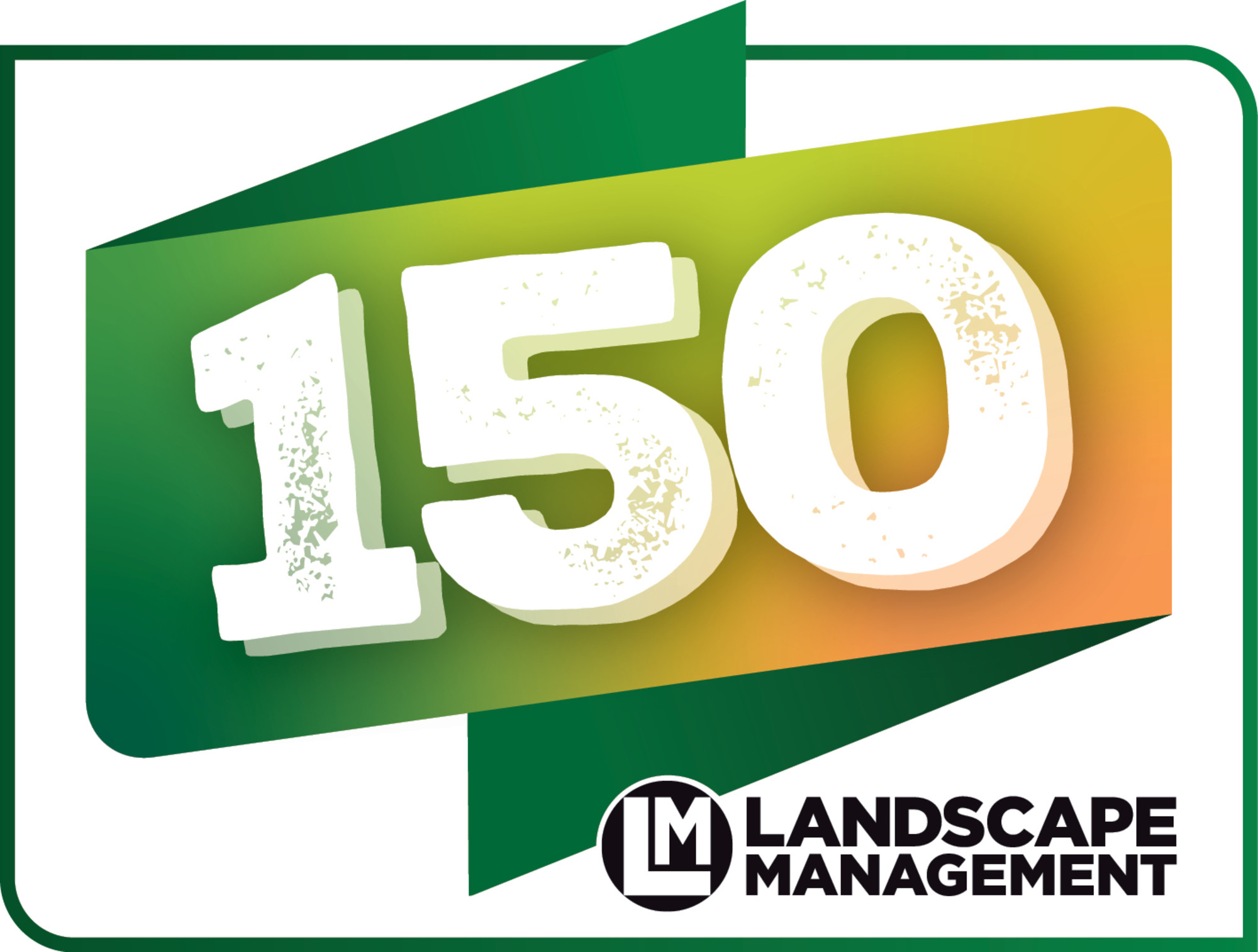Table of Contents
Table of Contents
- 1. Assess viability and create a business plan
- 2. Navigate legal and regulatory requirements
- 3. Set up your operations for success
- 4. Implement marketing and sales strategies
- 5. Manage your financials wisely
- 6. Tackle common challenges
- Leverage the right tools for your cleaning business
- Frequently Asked Questions
Starting a cleaning service presents various challenges, depending on factors such as your location, target market, competition, and your own level of expertise and resources.
Growth-minded entrepreneurs seeking a good return on investment opt for launching a cleaning business because of the following reasons:
Low startup and overhead costs
Consistent demand
Services are provided regardless of weather conditions
Commercial and residential clients hire cleaners
Growth for the cleaning industry is projected at 6.6% through 2030, according to market research from Grand View Research
After deciding whether to work as a sole proprietor or hire a reliable crew, strategic planning and setting reasonable expectations creates a solid foundation for success. Running a cleaning company requires hard work and dedication, but following these six key steps can help you maintain momentum as you start a cleaning business
1. Assess viability and create a business plan
Assessing viability and creating a business plan gives new cleaning business owners a roadmap for success and sustainability. Clearly defined goals help you make informed business decisions, minimize risks, and maximize your potential. Areas to focus on include:
Market research: Understand the demand for cleaning services in your area, identify your target market, and analyze your competition.
Financial planning: Estimate the startup costs of launching your cleaning business and consider ongoing expenses such as equipment, supplies, marketing, and overhead costs.
Profitability analysis: Forecast potential revenue and expenses to determine profitability for your cleaning business. Identify potential challenges and opportunities for growth.
Strategic planning: Think critically about your business goals, strategies, and objectives. Outline your unique value proposition, competitive advantages, and marketing strategies to differentiate your business from competitors.
Risk management: Identify potential risks and challenges for your cleaning business, then develop strategies to mitigate them and increase success.
Securing funding: A comprehensive business plan provides potential investors with a clear understanding of your business concept, market opportunity, financial projections, and growth strategy—essential for securing funding.
After research, planning, and strategy, it’s time to create your own cleaning business plan to outline your vision, establish an operational model, and set a blueprint for growth.
A business plan includes:
Executive summary: Provides an overview of your cleaning business, including its mission statement, business model, target market, and financial projections
Company overview: Explains who you are, why you’re in the cleaning service business, and your future growth goals
Cleaning services: Outlines your scope of services, including geographic service areas and specific offerings that set you apart from the competition
Pricing structure: Explains cleaning-service pricing, which factors in calculations for direct and indirect costs and a profit margin percentage
Market analysis: Evaluates industry outlook and trends, target market demographics, cleaning service demand, and market growth potential
Competitor analysis: Examines competitor services, service areas, prices, marketing share, customer ratings, marketing strategies, and online presence
Marketing and sales strategy: Details the plan for reaching your target market with marketing objectives, budgets, and tools for measuring performance
Management plan: Outlines your cleaning company's management structure and operational processes
Financial plan: Renders a financial overview and projects future business revenue
A comprehensive plan is essential to starting a cleaning business, especially to secure funding from investors or lenders. Business plans that clearly spell out your concept, market opportunity, financial projections, and growth strategy increase your chances of securing funding.
2. Navigate legal and regulatory requirements
Ready to make your cleaning business official? Research state and local legal requirements for starting a business in your area, such as registering the business with the state, obtaining licenses or permits, and complying with tax regulations.
Some legal regulations to consider include:
Choose a unique company name, but hire a trademark lawyer to thoroughly check for copyright issues.
Determine your business structure. A sole proprietorship means owner-operated, while a partnership means more than one owner. A limited liability company (LLC) separates the business’s assets and liabilities from your personal finances. You must also apply for an IRS Employment Identification Number (EIN).
Check state and local regulations for health and safety standards required to work in industries like hospitals or schools.
Obtain insurance to operate as a small business, such as:
General liability insurance: Covers damage to a client’s property and bodily injury caused during operations.
Workers' compensation insurance: Covers expenses and damages incurred by employees injured on the job.
Commercial auto insurance: Covers your company vehicle in the event of injuries, property damage, and uninsured drivers.
Complying with all legal and regulatory requirements sets the groundwork for a reputable and sustainable cleaning business.
3. Set up your operations for success
Set up your cleaning operations to deliver excellent customer service from day one with the following tips.
Build your team
Cleaning companies rely on trustworthy and professional crews to deliver high-quality work, especially when acquiring new customers for your house cleaning business. Interview candidates in person and perform background checks before hiring.
Business owners recruit reliable, trustworthy employees through:
Job websites
Local job fairs
Staffing agencies
Referrals from family and friends
Your company’s reputation and future growth depend on how well cleaning crews perform their jobs. Monitor performance and provide regular training opportunities to ensure success.
Acquire necessary tools and equipment
A residential cleaning business typically utilizes inexpensive cleaning tools and supplies. Choose high-quality cleaning equipment to ensure efficient and effective results.
Your equipment budget depends on the types of cleaning services you offer. Items include:
Mops, brooms, dusters and Swiffers
Floor steamer and vacuum cleaner
PPE including gloves, shoe covers, and masks
Paper towels and microfiber cloths
Surface cleaners and disinfectants
Toilet brushes
Equipment caddies for spray bottles, brushes, and sponges
Step stool
Trash bags
To boost revenue by offering specialty services, like carpet cleaning or window cleaning, you need the right tools:
Squeegees
Power washer
Carpet cleaner
Floor buffer
Dry vac
Ladder
Investing in the right tools for your cleaning team boosts efficiency and makes your equipment-buying strategy more cost-effective.
Establish workflow systems
Whether you work alone or employ crews, workflow systems streamline operations, maximize productivity, and save money.
Maintaining a cleaning schedule for clients allows you to optimize labor hours. Determine time allotments for each task and train crews to follow a task checklist. Use Aspire’s cleaning crew checklist to ensure a thorough performance.
Technology designed for cleaning service companies automates operations and increases revenue. Aspire’s all-in-one software platform offers tools to:
Automate tasks: Aspire provides estimating, scheduling, and management tools for real-time job costing and performance updates.
Improve team communication: Aspire’s mobile app enables crews to view live schedule updates and detailed checklists or log visit notes and upload photos.
Measure team performance: Aspire boosts efficiency with mobile time tracking and a site inspection tool to reduce callbacks and increase customer satisfaction.
When starting a residential or commercial cleaning business, efficient operations help you deliver consistently high-quality cleaning services, maintain customer satisfaction, and build a strong reputation and a larger client base.
4. Implement marketing and sales strategies
A marketing and sales strategy promotes your cleaning business, attracts clients, and powers growth. A solid marketing plan includes advertising, marketing, branding, and customer referrals.
Target specific industries to promote your cleaning services. Tailor messages for these business sectors:
Apartment complexes and property management companies
Realtors
Restaurants
Small businesses and offices for after-hours cleaning
Schools and hospitals
Traditional marketing includes door hangers, leaving business cards at local restaurants, and radio, TV, or newspaper advertising. In today’s digital marketplace, a successful marketing plan includes online marketing as a cost-effective way to establish brand identity and find new customers.
Online marketing methods include:
Building a website. Research search engine optimization (SEO) practices to optimize your website content and boost your ranking in online searches.
Claiming your Google Business Page. Add your location to appear on a map of search results for cleaning services in your area. Add photos and your business information. It’s free.
Opening social media accounts. Engage with potential customers on Facebook, Instagram, and TikTok. Posting regularly increases brand awareness.
Listing your business on home-service platforms. Sign up for Care.com, TaskRabbit, Handy, or Thumbtack to promote your cleaning services.
Joining neighborhood Facebook groups. Target specific ZIP codes and engage with potential customers by commenting, liking, and monitoring requests made for cleaning services.
Running a marketing campaign. Attract new business by offering a deal on an initial cleaning service. Use ServiceTitan’s Marketing Pro integration with Aspire to leverage household and property data to design targeted campaigns across various channels.
Investing in pay-per-click (PPC) advertising. Invest in PPC ads on Google, Facebook, or Instagram to reach your target market based on ZIP code, household income, and other factors.
Your brand image reflects your company values and speaks to your target audience. Use your business name and professional logo consistently on all marketing materials, such as:
Website and social media accounts
Business cards
Invoices and letterheads
Uniforms
Advertisements and marketing materials
Custom car magnets
Your most valuable marketing assets are customer referrals, testimonials, and social media shares. Most people trust testimonials more than advertising. Ask happy customers to leave a comment on your Facebook page or Google Business Profile. Use Aspire software to automatically email your clients a link to write a review online.
5. Manage your financials wisely
According to Forbes, the price of a typical cleaning job ranges from $60 to $400. Though a cleaning business can be lucrative after it scales, starting a business in this industry is not a capital-rich proposition in the early stages. Careful budgeting and cash-flow management ensure the stability needed for long-term growth.
Costs
Startup costs vary depending on the size of your business and the cleaning equipment needed to serve a residential or commercial target market. Costs range from hundreds of dollars for a small, one-person operation to about $10,000 for a large outfit with multiple employees and a fleet of leased vehicles.
Typical fixed expenditures for a cleaning business include:
Business licenses: $100 to $500 per year
Insurance: $400 per year
Tools: $500 to $2,000 for essential items such as vacuum cleaners, mops, brooms, dustpans, buckets, sponges, and scrub brushes
Cleaning solutions: $200 to $1,000 for various cleaning solutions, disinfectants, and chemicals
Marketing: $150 upfront for a basic website and business cards
Your salary: According to Indeed, the average salary for a commercial cleaning business owner is $60,000
Other expenses include:
Labor: According to the U.S. Bureau of Labor Statistics, the median wage for house cleaners is $16 per hour
Online advertising: $100 per month and up
According to Car and Driver, the cost to lease a car averages about $487 per month
Revenue and Cash Flow
To ensure profitability, price your services to cover all expenses and garner a reasonable 10% profit margin.
Cleaning businesses price services in a number of ways, such as:
By the hour
By square footage
By number of rooms
By specialty cleaning service
Extra fee for rush jobs
Use Aspire’s business management software to implement these smart cash-flow strategies:
Allow crew members to use a mobile app to process credit card payments on the job site
Set up online invoicing and payment collection
Automate digital invoicing and payment reminders
Streamline accounts receivable and accounts payable to improve cash flow
Track key performance indicators (KPIs), such as: the number of booked jobs, conversion rates, revenue generated per new client, percentage of repeat business, and number of cancellations
6. Tackle common challenges
Every new business faces challenges. Cleaning businesses thrive when they anticipate industry obstacles and create a proactive plan to address them.
How to retain clients
Earning repeat business means you spend less time and money acquiring new clients and more effort delivering excellent results that translate into new customer referrals. Follow these best customer-service practices to deliver superior results and build strong relationships to retain loyal customers:
Engage with clients through personalized follow-up calls and emails
Ask for feedback to improve service on the next visit
Address any client feedback immediately to maintain satisfaction and trust
Resolve any client complaints as soon as possible
Monitor social media and respond to any comments within a day or two
Increase engagement by emailing a monthly newsletter with seasonal cleaning ideas, organization tips, and new service announcements.
Offer a referral reward program
Display your contact information prominently on your website and in emails
How to overcome staffing issues
Finding and keeping trustworthy, reliable, professional, and skilled employees is the industry’s biggest challenge.
To attract high-quality workers:
Offer competitive wages
Stress your company’s benefits and values
Implement an employee referral bonus
Retention also plays an important role in your company’s success because replacing workers takes time and reduces productivity. To keep employees happy:
Invest in skill development so cleaners earn certification to earn higher pay
Offer opportunities for advancement
Train crews to understand new technology
Stay organized and responsive with business operations software
Ongoing training and support ensure consistent quality of service. Regularly solicit employee feedback to ensure their satisfaction and demonstrate how you value their input.
How to stand out from the competition
Distinguish your cleaning service by identifying unique selling points and building a strong brand.
Emphasize these valuable differentiators:
Expertise
Specialty services
Number of clients
Industries served
5-star customer reviews
Pricing
Same-day service
Research your market to identify missing services and underserved niches. Promote any specialized services, such as marble cleaning or windows. Target a niche market like home renovators to cater to specific needs or preferences.
A strong brand identity stands out from the competition and makes a memorable impression. Boost your brand identity through:
Uniforms and protective equipment in your brand colors, down to the shoe covers
High-quality social media content
Complimentary bottles of branded cleaner in a unique, subtle scent
Companies that consistently deliver superior results and exceed customer expectations in service industries gain a competitive edge. There’s no substitute for excellent word-of-mouth referrals from a satisfied client.

Leverage the right tools for your cleaning business
Technology changes rapidly, and investing in tools that stay on top of trends is essential to growing a successful cleaning business.
Aspire’s complete all-in-one business management software empowers cleaning business owners to leverage every opportunity to streamline operations, increase sales, and improve customer satisfaction.
Schedule a demo today to learn about Aspire’s powerful tools designed for cleaning businesses.
Frequently Asked Questions
Find answers to commonly asked questions about starting and running a cleaning service business.
Q1: What is the best type of cleaning business to start?
The best cleaning business to start depends on your preferences and the location’s market opportunities. The BLS projects growth in janitorial jobs, suggesting higher demand for commercial cleaning services. Also, as the Baby Boomer population ages, the higher the demand for house cleaning services and sustainable cleaning practices.
Q2: How profitable is starting a cleaning business?
A well-run cleaning business that provides quality services can be quite profitable. The average profit margin for a residential cleaning service in 2024 is 15 to 30%, according to Gitnux market research.
Q3: How do I price my cleaning services?
Cleaning businesses price services by an hourly rate, square footage, or room. Specialty services like window cleaning and waxing floors typically cost extra. The average cost varies by market. Research competitor prices in your area to determine your strategic pricing.










